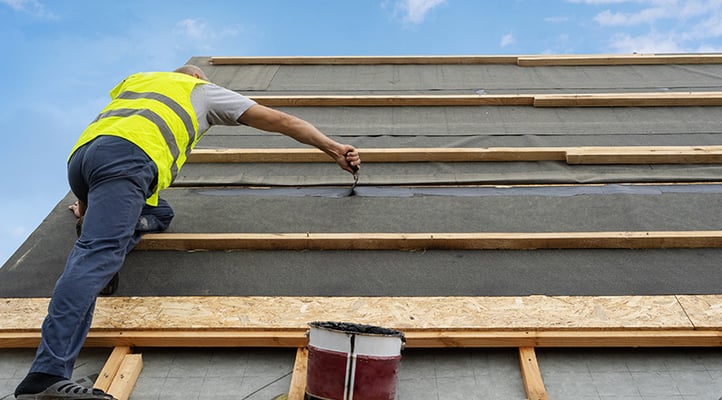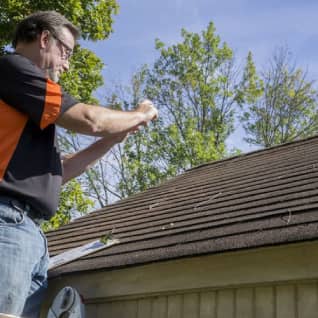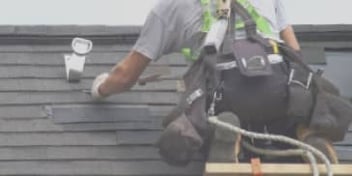- Home »
- Learningcenter »
- The role of insurance in roofing repairs and replacements
The Role of Insurance in Roofing Repairs and Replacements

Roofing is a critical aspect of home maintenance that often involves considerable expenses. More often than not, homeowners rely on insurance to navigate these costs, making it crucial to understand the role insurance plays in roofing repairs and replacements.
This article delves into the intricacies involved in insurance coverage for roofing damages, elucidating the process, benefits, and potential hurdles.
The importance of comprehending the role of insurance in roofing repairs and replacements cannot be overstated. An integral part of homeownership is protecting your investment, and your roof is a significant part of that investment. Knowing how your insurance policy applies to potential roof damage can save you from unexpected and considerable expenses.
Furthermore, a thorough understanding of this process can facilitate effective communication with your insurer, ensuring that you maximize the benefits of your policy.
Understanding Homeowners Insurance
As a homeowner, one of your primary responsibilities is to ensure the protection and upkeep of your property, and homeowner's insurance plays a crucial role in this endeavor. Homeowner's insurance is a type of property insurance that covers losses and damages to an individual's house and assets in the home. It typically provides liability coverage against accidents in the home or on the property. Understanding the nuances of your homeowner's insurance policy can save you significant financial distress when disaster strikes.
Homeowners insurance typically covers four main areas:
- Interior damage: This includes damage to the inside of your home, such as walls, floors, ceilings, and personal belongings.
- Exterior damage: This covers damage to the outside of your home, including the roof, siding, windows, and doors.
- Loss or damage of personal assets: Your belongings within the home are typically covered up to a certain limit. This can include furniture, electronics, appliances, and clothing.
- Injury that arises while on the property: If someone is injured on your property, your liability coverage can help pay for their medical expenses and legal fees.
It's important to remember that each category has its limitations and not all types of damage are covered under a standard policy. For instance, most insurance policies will not cover damage caused by poor or deferred maintenance on your part. This is why regular upkeep and prompt repairs are essential.
Roofing Insurance Coverage
Roofing insurance coverage is a vital aspect of homeowner's insurance. It's important to understand that not all homeowner's insurance policies provide the same level of roof coverage. Some policies take the age of your roof into account at the time it is damaged. For instance, if your roof is less than 10 years old, you may be covered for the full cost of repairing or replacing the damaged section of your roof at the time of the claim. If your roof is over 10 years old, you may only be reimbursed for the depreciated value of the damaged roof. The key is to understand the specifics of your coverage before you need it, to avoid any surprises when you least expect them.
Factors that can affect your roof insurance coverage:
- Age of your roof: Older roofs may have reduced coverage due to depreciation.
- Roof type: Some roofing materials may have better coverage than others.
- Cause of damage: Coverage will vary depending on whether the damage was caused by a covered peril, such as a storm, or by something that is not covered, such as neglect.
- Deductible: Your deductible is the amount you will have to pay out-of-pocket before your insurance coverage kicks in.
To ensure you have adequate coverage, it's essential to review your policy carefully and discuss any questions or concerns with your insurance agent. An experienced Atlanta roofer can also provide valuable insights into roofing insurance and help you understand your coverage options.
When Does Insurance Cover Roof Repairs and Replacements?
There are specific circumstances under which insurance will cover roof repairs in Atlanta. The general rule of thumb is that homeowners' insurance covers roof repairs when the damage is sudden, unexpected, and caused by an event outside of the homeowner's control.
Covered Perils:
- Storm damage: This can include damage from wind, hail, rain, snow, and lightning.
- Fire damage: If a fire damages your roof, your insurance will typically cover the repairs.
- Falling objects: Damage from a fallen tree or debris is usually covered.
- Vandalism: If your roof is damaged by vandals, your insurance may cover the repairs.
Examples of damage that is typically NOT covered:
- Wear: Gradual deterioration of your roof due to age or normal weather conditions.
- Lack of maintenance: Damage caused by neglecting necessary repairs.
- Pest infestation: Damage caused by insects or animals.
- Flooding: Flood damage is typically covered by a separate flood insurance policy.
Understanding the difference between 'wear and tear' and 'sudden and accidental damage' is crucial. Wear and tear is your responsibility as a homeowner, while sudden and accidental damage is typically covered by your insurance policy.
Roof Replacement Coverage
In terms of roof replacement in Atlanta, homeowners' insurance will typically cover the cost if the roof was in good condition prior to the damaging event and the damage was severe enough to necessitate a replacement. For instance, if a tornado destroys your roof completely, this would likely fall under the coverage of your insurance policy. It's important to note though, that the coverage may be subject to the roof's depreciated value, especially if the roof was older.
The Process of Filing a Roof Insurance Claim
Filing a roof insurance claim can seem daunting, but understanding the process can help make it smoother. Here are the key steps involved:
- Document the damage: Take clear photos and videos of all damaged areas. This visual evidence is crucial for your claim.
- Contact your insurance company: Report the damage asap. Delays can complicate your claim.
- Schedule an inspection: An insurance adjuster will visit your property to assess the damage.
- Review the adjuster's report: Carefully review the report to ensure it accurately reflects the damage.
- Negotiate the settlement: If you disagree with the adjuster's assessment, you can negotiate for a higher settlement.
- Get repairs done: Once the settlement is agreed upon, you can hire an Atlanta roofing company to make the necessary repairs or replacements.
Tips for a Successful Claim:
- Report the damage promptly.
- Keep detailed records of all communication with your insurance company.
- Provide thorough documentation, including photos, videos, and repair estimates.
- Be prepared to negotiate.
- Consider hiring a public adjuster if you need assistance.
Working with a reputable Atlanta commercial roofing company can be beneficial during this process. They can provide a professional assessment of the damage, assist with documentation, and even help you communicate with your insurance company.
Dealing with Insurance Claim Denials
While most insurance claims are processed without issues, there are instances where claims are denied. Understanding the common reasons for denial can help you avoid these situations.
Common Reasons for Denial:
- Damage caused by wear and tear or lack of maintenance.
- Insufficient documentation.
- Inaccurate information on the claim form.
- The claim amount is less than your deductible.
- Damage is not covered by your policy.
What to Do if Your Claim is Denied:
- Review the denial letter carefully. Understand the specific reasons for the denial.
- Recheck your policy. Verify if the damage should be covered under your policy terms.
- Contact your insurance company. Discuss your concerns and try to resolve the issue.
- Appeal the decision. If you believe the denial is unjustified, you can file an appeal.
- Seek professional help. Consider hiring a public adjuster or attorney if you need assistance with the appeal process.
Preventative Measures and Regular Maintenance
Regular roof maintenance is essential for preventing damage and extending the life of your roof. It can also help you avoid insurance claim denials.
Benefits of Regular Maintenance:
- Identifies potential problems early.
- Prevents costly repairs.
- Prolongs the lifespan of your roof.
- Improves energy efficiency.
- Increases chances of successful insurance claims.
Preventative Measures:
- Regular inspections: Inspect your roof at least twice a year, especially after severe weather.
- Clean gutters and downspouts: Clogged gutters can cause water damage.
- Trim overhanging branches: Branches can scrape against your roof and cause damage.
- Remove debris: Keep your roof free of leaves, branches, and other debris.
- Address repairs promptly: Don't delay in repairing any damage, no matter how small.
By investing in preventative care, you can protect your roof and ensure that you are adequately covered in case of unexpected damage.
What to Keep in Mind
In conclusion, understanding the role of insurance in roofing repairs and replacements is crucial for every homeowner. Insurance can provide valuable financial protection, but it's important to remember that coverage is not automatic.
By taking preventative measures, maintaining your roof properly, and understanding your policy, you can ensure that your roof is protected and that you receive the compensation you deserve in case of damage.
Need Roofing Help? Contact the Experts!
Don't wait until disaster strikes to think about your roof. Contact Colony Roofers today for a free inspection and estimate. We are your trusted Atlanta roofing company, specializing in both residential and commercial roofing. Our team of experts is dedicated to providing high-quality workmanship.
 Call (678) 365-3138
Call (678) 365-3138


